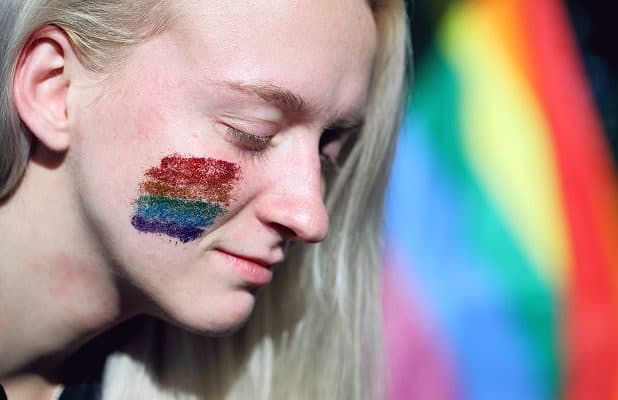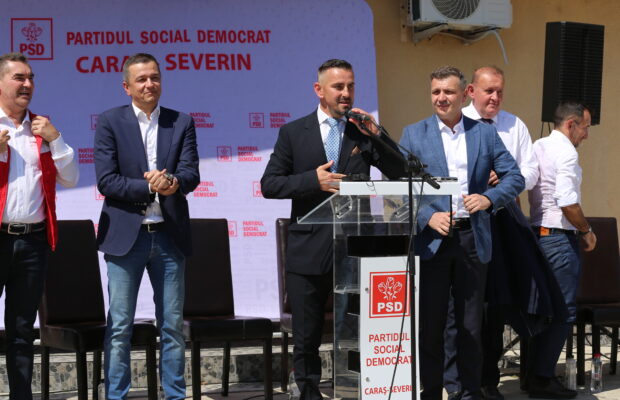Când un judecător acționează ca zeu – Ziua Internaţională a Vizibilităţii Transgenderilor

România a fost găsită vinovată. Vinovată de încălcarea drepturilor omului. Vinovată de a forța oamenii să fie supuși unei intervenții chirurgicale pentru a-și schimba legal sexul. O hotărâre judecătorească reprezentativă pentru modul în care o țară UE abuzează de cetățenii transgender.
La sfârșitul lunii ianuarie, Curtea Europeană a Drepturilor Omului (CEDO) a găsit România vinovată de încălcarea drepturilor transgender, drepturile omului. Odată ce această instanță a decis bătălia legală a domnului X și a domnului Y, doi bărbați transgender care au luptat pentru recunoașterea legală a genului. În spatele celor doi solicitanți se află o comunitate de persoane transgender care luptă pentru dreptul lor de a exista, de a lucra și de a primi îngrijiri medicale. O persoană transgender este cineva care se identifică cu un sex diferit de cel atribuit la naștere. Genul atribuit la naștere este, de asemenea, genul care ulterior devine o mare parte a identității juridice a unei persoane. Numai pe cartea de identitate română există trei markere de gen: numele, numărul de identificare și marca de sex (f sau m). Dacă acești factori nu sunt străini de genul pe care o persoană îl identifică cu viața de zi cu zi se transformă într-o luptă.
„Imaginează-mă. Arăt destul de bărbat. Am barbă și o voce profundă. Dar documentele mele nu spun Patrick. Există prenumele, numărul de identificare și marcatorul de sex. Am cei trei markeri de sex feminin. Trebuie să funcționez cu acel ID în fiecare zi din viața mea. Imaginați-vă că mergeți la spital într-un accident, ei nu ar ști ce să facă cu mine. Imaginați-vă că mergeți la poliție sau la orice altă autoritate, colectând un pachet la oficiul poștal, punând bani pe contul meu. Totul devine o povară, o bătaie de cap”, explică Patrick Brăila, activist trans și copreședinte al ACCEPT, prima organizație neguvernamentală din România care apără drepturile LGBT (lesbiene, gay, bisexuale, transgender) la nivel național.
Când ura încheie cariere
Pe lângă publicul larg, locul de muncă este adesea unul dintre cele mai ostile medii pentru persoanele transgender. Aceștia se confruntă cu discriminări și hărțuire din partea colegilor de muncă și a angajaților, care îi obligă uneori să-și păstreze secretul identității de gen pentru a reuși în cariera lor. Într-un sondaj efectuat de ACCEPT, care a documentat viața persoanelor transgender din România, o femeie transgender a povestit ce s-a întâmplat imediat ce a mărturisit la angajatorul ei că este transgender.
„I-am spus șefului meu într-o discuție privată: «Uite ce se va întâmpla cu mine, uite care este situația», astfel încât să nu existe discuții. […] La un moment dat, el mă sună după câteva zile și îmi spune: «Ok, trebuie să încheiem cumva această colaborare, pentru că nu putem continua în aceste circumstanțe. Echipa nu te va mai vedea ca autoritate, nu va mai vedea o persoană de ascultat și, ca atare, ar trebui să încheiem colaborarea». […] Fiind o discuție privată, într-un birou în care nu știam că ar fi trebuit să-mi iau telefonul cu mine în mână pentru a înregistra conversația, în mod automat, nu aveam nicio dovadă pentru a merge la Curte.”
Dar chiar și cu dovezi solide care raportează discriminarea ca persoană transgender în România pare a fi mult efort pentru, în cel mai bun caz, rezultat cu adevărat mic. Legea antidiscriminare existentă nu menționează discriminarea bazată pe identitatea de gen. Dacă o persoană transă ar decide în continuare să meargă în instanță, ar trebui să găsească un avocat care să înțeleagă circumstanțele, să prezinte dovezi și martori și să meargă în fața unui judecător care ar putea fi supus și mai mult la ură. La sfârșitul acestui calvar, în cel mai bun caz, așteaptă o amendă pentru persoana care a comis infracțiunea de ură pe care a plătit-o statului României. Nu există protecție legală pentru ca persoanele trans să fie în legea română și singura hotărâre judecătorească în favoarea lor nu le aduce beneficii lor, ci statului.
Un judecător devine zeu
Deci, de ce să suporți toate acestea? De ce să trăim în pericol de violență și discriminare? De ce persoanele transgender nu schimbă doar genul din documentele lor?
Ei bine, din nou, nu există nicio lege pentru asta. Nu există un proces legal care să ofere instrucțiuni clare cu privire la modul în care o persoană își poate schimba în mod legal sexul. În întreaga profunzime a sistemului politic românesc există un articol dintr-o singură lege din 1996 care spune că genul din documentele legale poate fi schimbat printr-o hotărâre judecătorească.
„Deci, în primul rând trebuie să te duci în fața unui judecător, în instanță. Ceea ce nu este ok. Dar datorită legii, judecătorul devine zeu în viața ta.”, descrie Brăila situația juridică.
Această persoană este acum permisă prin lege să decidă despre identitatea altei ființe umane. Acest judecător este acum cel care spune altcuiva, ce trebuie să facă pentru a fi considerați suficient de „femeie” sau „bărbat”. În alt mod, pentru a obține aprobarea acestui judecător, solicitanții pot fi nevoiți să aducă dovezi medicale sau martori. Există cazuri în care judecătorul solicită în mod specific intervenții chirurgicale, intervenții chirurgicale pe organele genitale, pe care CEDO le declară în mod specific ca o încălcare a drepturilor omului. Judecătorul poate trimite, de asemenea, persoane trans la institutul medical legal, unde sunt supuse unor proceduri foarte intruzive, cum ar fi verificarea și măsurarea întregului corp, precum și teste psihologice. În cele din urmă, o schimbare legală de gen poate avea loc numai în condițiile acestui judecător care se pronunță asupra corpului altei persoane.
Costul unui apartament pentru a fi tu însuți
Dacă această hotărâre include o intervenție chirurgicală de realocare a sexului, această cerință nu poate fi îndeplinită în România, deoarece nu există medici la nivel național care să fie capabili și dispuși să efectueze astfel de operații. Următoarele instituții medicale disponibile sunt în Serbia. Adică o persoană transgender care caută aceste intervenții, indiferent dacă din voință liberă sau la cererea unui judecător ar trebui să călătorească de mai multe ori într-o altă țară, să plătească pentru călătorie, cazare și operație. După toată această energie și bani cheltuiți, ar trebui să se prezinte în continuare personalului de la centrul medical legal pentru ca profesioniștii din domeniul medical să se uite la noile lor organe genitale și să facă din nou apel în fața unei instanțe pentru ca judecătorul să le permită să devină legal în sfârșit cine au fost tot timpul.
Întrucât fiecare persoană are o identitate de gen foarte individuală, indiferent dacă este trans sau nu, se dovedește extrem de dificil de estimat cât ar costa recunoașterea legală de gen și operațiile conexe. Potrivit lui Patrick Brăila și experienței sale în activism trans, prețul total este comparabil cu achiziționarea unui apartament cu o cameră. Desigur, doar luând în considerare costul financiar. În afară de bani, există multă energie și emoții cheltuite în procesul de recunoaștere legală a persoanelor trans din România. Deoarece este una dintre cele mai mari concepții greșite pe care toți transgenii caută să-și transforme pe deplin corpul.
„Există persoane care nu vor să fie supuse unei intervenții chirurgicale. Sau cine nu vrea să o facă prin hotărârea judecătorului. Vor să o facă după proprii termeni în timpul lor. Acesta este motivul pentru care hotărârea CEDO este importantă pentru că oprește acest lucru. Oprește un judecător să spună: „Trebuie să fii operat pentru a-ți schimba documentele”.
UE în teorie – România în practică
Antonella Lerca-Duda, activistă trans, autor și membru bord al TGEU (Transgender Europe) este dezamăgită de pasivitatea Uniunii Europene.
„Europa este un promotor al drepturilor omului și al drepturilor LGBTQI +. Dar oferă doar un sfat. Nu poate obliga România să ia măsuri, nu se poate implica singură în decizia pe care parlamentul nostru o ia sau nu o ia. UE oferă sfaturi, dar nu face nimic. UE uită de țările din est. Ei ar trebui să elaboreze o lege care să aplice aceste decizii. Sunt atât de sătul de declarații. Sunt doar cuvinte care nu devin niciodată fapte.”
Furioasă de lipsa reprezentării feminine și ciudate în politica românească, Lerca-Duda a decis să acționeze anul trecut când a candidat la funcții în sectorul 2 din București. Candidatura ei a fost întâmpinată cu sprijinul imediat al unei comunități din spatele ei și cu o cantitate egală de transfobie provenită de la societate și politicieni. Prin pasul său către politica activă și atenția care i-a venit, a creat o nouă platformă de vizibilitate pentru persoanele trans din România care au un impact deosebit asupra tinerilor.
Experiența lui Lerca-Dudas cu tinerii transgender se potrivește cu rezultatele sondajului realizat de ACCEPT atunci când vine vorba de locul în care tinerii trans și membrii comunității trans își obțin informațiile despre sănătate. Aproape 90% dintre participanți au indicat că apelează la alți membri ai comunității lor, în timp ce doar 11% primesc informații despre corpul sau sănătatea lor de la personalul medical. Un rezultat care demonstrează că aproape nu există resurse pentru persoanele transgender pentru a primi un tratament adecvat sau chiar educație cu privire la posibilitățile pe care le au.
O situație pe care Senatul României ar dori să o schimbe – într-o direcție și mai catastrofală. În iunie anul trecut, Senatul României a adoptat un proiect de lege care ar fi interzis orice discuție privind identitatea de gen în orice context educațional. Adică ar fi fost interzis să vorbim despre identitatea de gen în școală, universitate sau să informăm poliția, personalul medical sau asistenții sociali pe această temă. Acest proiect de lege ar fi șters pur și simplu persoanele transgender din societatea românească. Șase luni mai târziu și după mai multe proteste din partea universităților și a grupurilor pentru drepturile omului, această interdicție a fost anulată de curtea constituțională a României. În cele din urmă, legea nu a trecut prin prima încercare, dar oamenii care își investesc puterea politică pentru a interzice existența unei comunități întregi sunt încă acolo, ședințe în Parlament, Senat și poziții guvernamentale. Pe de altă parte, există și oameni precum Antonella Lerca-Duda și Partick Brăila care monitorizează situația și luptă pentru drepturile trans, drepturile omului.
„Am văzut că conștientizarea funcționează. Există mai mulți oameni care vorbesc despre ei înșiși ca transgender, tare și mândri deși este nevoie de ceva efort, dar ei o fac. Ceea ce e grozav. Dar la nivel legislativ, judiciar nu este același lucru. Decalajul este din ce în ce mai mare. Nu se abordează corect acest lucru. Nu se oferă un spațiu sigur în care sa ne simțim în siguranță pentru a ne adresa acestora. Ne temem de autorități, deoarece experiența ne-a învățat acest lucru. Vedem că munca noastră funcționează. În același timp, mișcarea anti-trans crește, de asemenea. Dar trebuie să vorbim, trebuie să facem această societate conștientă de existența noastră și de faptul că trebuie să fim egali”.
***
When a judge acts as god – International day of Transgender Visibility
Romania was found guilty. Guilty of violating human rights. Guilty of forcing people to undergo surgery in order to legally change their gender. A court ruling that stands representative for how an EU-country abuses it´s transgender citizens.
In late January, the European Court of Human Rights ((ECHR)) found Romania guilty of violating transgender rights, human rights. With this court ruling the legal battle of Mister X and Mister Y, two transgender men who fought for their legal gender recognition, ends. Behind the two applicants stands a community of transgender people fighting for their right to exists, to work and to receive health care. A transgender person is someone who identifies with a different gender than the one assigned at birth. The gender assigned at birth is also the gender that later on becomes a big part of a person´s legal identity. On the Romanian identity card alone, there are three gender markers: the name, the identification number and the sex mark (f or m). If these factors don’t alien with the gender a person identifies with daily life turns into a struggle.
“Imagine me. I look quite male. I have a beard and a deep voice. But my documents don’t say Patrick. There is the first name, the identification number, and the sex marker. I have the three female gender markers. I have to function with that ID every day of my life. Imagine going to the hospital in an accident, they wouldn’t know what to do with me. Imagine going to the police or any other authority, collecting a package at the post office, putting money on my account. It all becomes a burden, a hassle. “
Explains Patrick Brăila, a trans activist and co-president of ACCEPT, the first non-governmental organization in Romania which defends LGBT (lesbian, gay, bisexual, transgender) rights on a national level.
When hate ends careers
Besides the general public the workplace is often one of the most hostile environments for transgender people. They face discrimination and harassment by coworkers and employees sometimes forcing them to keep their gender identity a secret in order to succeed in their careers. In a survey carried out by ACCEPT, documenting the lives of transgender people in Romania a transgender woman told her story of what happened as soon as she came out to her employer as transgender.
“I told [my boss] in a private discussion: “Look what will happen to me, look what the situation is”, so that there would be no discussions. […] At one point, he calls me after a few days and tells me: ‘Ok, we have to somehow end this collaboration, because we can’t continue under these circumstances. The team will no longer see you as authority, they will no longer see a person to listen to and, as such, we should end the collaboration’. […] Being a private discussion, in an office in which I didn’t know I should have taken my phone with me in my hand [to record the conversation – ed. note] […], automatically, I had no proof to go to Court.”
But even with solid evidence reporting discrimination as a transgender person in Romania seems to be a lot of effort for in the best case truly little outcome. The existing anti-discrimination law does not mention the discrimination based on gender identity. Would a trans person still decide to go to court they would have to find an attorney who understands the circumstances, to present proof and witnesses and go in front of a judge possibly being subjected to even more hate. At the end of this ordeal in the best case waits a fine for the person who committed the hate crime which they pay to the state of Romania. There is no legal protection for trans people to being with in the Romanian law and the only court ruling in their favor does not benefit them but the state.
A Judge becomes god
So why endure all this? Why live in danger of violence and discrimination? Why don’t transgender people just get the gender on their documents changed?
Well, again there is no law for it. There is no legal process which gives clear instructions into how a person can legally change their gender. In the whole depth of the Romanian political system there is one article of one law from 1996 which says the gender in legal documents can be changed by a court decision.
“So, first of all you have to go in front of a judge, in court. Which is not ok. But because of the law that judge becomes god on your life.” Describes Brăila the legal situation.
This one person is now by law allowed to decide about the identity of another human being. This judge is now the one telling somebody else, what they must do to be considered “woman” or “man” enough. In other to get this judge´s approval applicants may have to bring medical evidence or witnesses. There are cases where the judge specifically asks for surgical interventions, surgery on genitals, which the ECHR specifically states as a violation of human rights. The judge can also send trans people to the legal medical institute where they are subjected to some very intrusive procedures like having their whole body checked and measured as well as to psychological tests. In the end a legal gender change can only happen on the terms of this one judge ruling over another person’s body.
The cost of an apartment to be yourself
If this ruling includes a gender reassignment surgery, this requirement can’t be fulfilled in Romania as there are no doctors nation-wide who are able and willing to perform such operations. The next available medical institutions are in Serbia. Meaning a transgender person seeking these sugeries no matter if out of free will or on the demands of a judge would have to travel to a different country several times, pay for travel, accommodation, and surgery. After all of this energy and money spend, they would still have to present themselves to staff at the legal medical center to have medical professionals look at their new genitalia and again appeal in front of a court for the judge to allow them to legally finally become who they were all along.
As every person has a very individual gender identity, no matter if trans or not, it proves exceedingly difficult to estimate how much legal gender recognition and the connected surgeries would cost. According to Patrick Brăila and his experience in trans activism the total price is comparable to the purchase of a one-room apartment. Of course, only considering the financial cost. Apart from money there is a lot of energy and emotions spend on the process of legal recognition for trans people in Romania. As it is one of the biggest misconceptions that all transgender people seek to fully transform their body.
“There are people who do not want to undergo surgery. Or who do not want to do it by the judge´s ruling. They want to do it by their own terms in their own time. This is why the ECHR ruling is important because it stops this. It stops a judge saying, “you need to undergo surgery to change your documents.”
EU in theory – Romania in praxis
In theory that is what the outcome of the cases of Mister X and Mister Y has resulted in. Has it though? Has a statement by an EU court changed the way the Romanian government treats transgender people?
Antonella Lerca-Duda, a trans activist, author and bord member of TGEU (Transgender Europe) is disappointed by the passiveness of the European Union.
“Europe is a promoter of human rights and LGBTQI+ rights. But it gives just an advice. It can´t obligate Romania to take action, it can’t involve itslef in the decision our parliament takes or doesn´t take. The EU gives advice but doesn’t do anything. The EU forgets about the eastern countries. They should develop a law that enforces theses decisions. I am so sick of statements. They are just words never becoming facts.”
Angered by the lack of female and queer representation in Romanian politics Lerca-Duda decided to act last year when she ran for office in the 2nd sector of Bucharest. Her candidacy was met with immediate support from a community behind her and equal amount of transphobia coming from society and politicians. Through her step into active politics and the attention that came with it she created a new platform of visibility for trans people in Romania especially impacting youth.
“A lot of teenagers of the trans community messaged me asking me questions that should be covered in sexual education in school. But they are not so I become their teacher. I am happy that young people see a transgender woman having the courage to run for office. Because it gives them hope and creates a vision that people who are LGBTQI+ can candidate.”
A bill trying to erase existence
Lerca-Dudas experience with transgender youth matches the findings of the survey done by ACCEPT. When it comes to where trans youth and members of the trans community get their information about health. Nearly 90% of the participants indicated that they turn to other members of their community whereas only 11% get information concerning their bodies or health from medical staff. A result that proves that there are nearly no resources for transgender people to get proper treatment or even education on the possibilities they have.
A situation it seems the Romanian senate would like to change – in an even more catastrophic direction. Last June the Romanian Senate passed a bill which would have banned any discussion of gender identity in any educational context. Meaning it would have been forbidden to talk about gender identity in school, university or to brief police, medical staff, or social workers on this topic. This bill would have simply erased transgender people from Romanian society. Six months later and after several protests by universities and human rights groups this ban was overturned by Romania´s constitutional court. The law in the end didn´t go through on the first try, but the people who invest their political power to forbid a whole community’s existence are still there, sitting in Parliament, Senate, and government positions. On the other side there are also people like Antonella Lerca-Duda and Partick Brăila monitoring the situation and fighting for trans rights, human rights.
“We have seen that awareness works. There are more people that talk about themselves being transgender, loud and proud. Although it takes some effort, but they are doing it. Which is great. But at the legislative, judicial, authorities level it is not the same. The gap is getting bigger. They don’t address this correctly. The do not offer a secure space where we feel safe to address them. We fear the authorities because experience taught us so. We see that our work works. At the same same time the anti-trans movement is growing as well. They will not stop. But we must talk we have to make this society aware of our existence and the fact that we need to be equal, no less.”
Autor: Amelie Sztatecsny
Traducere: Dan Trașcă



















